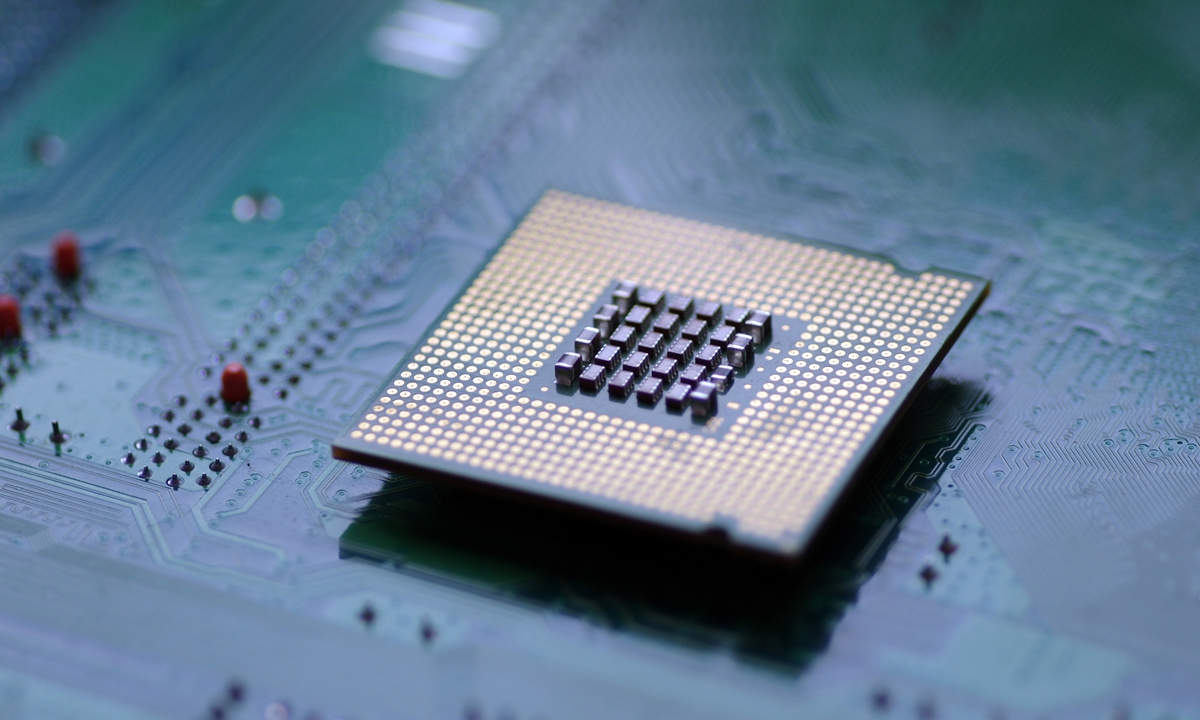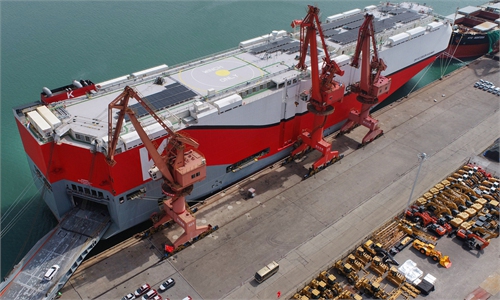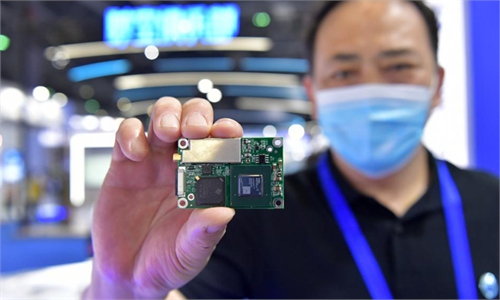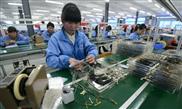
chip Photo:VCG
Chinese-owned semiconductor company Nexperia reportedly announced on Monday that it had taken full control of the UK's largest producer of silicon chips, Newport Wafer Fab (NWF).Given the current global chip shortage as well as the strategic importance of the semiconductor sector, the sale of the UK's largest chipmaker to a Chinese company has unsurprisingly drawn widespread attention, together with backlash from some Britain politicians. A senior Tory MP, Tom Tugendhat, on Monday publicly called for a review into the deal under the National Security and Investment Act, new legislation aimed at protecting key national assets such as semiconductor companies from foreign takeover.
It can be said that such kind of political pressure is completely within expectation at a time when anything related to the semiconductor industry is seen as sensitive or leads to far-reaching implications for the future. To a certain extent, the fact that Nexperia and NWF were able to push the acquisition deal forward to eventually get it done underscores the great potential for Chinese mergers and acquisitions (M&A) in Europe.
As the global economy recovers from the pandemic hit, China is moving especially fast. Under the current circumstances, the strong demand for industrial transformation, coupled with the steady rise in business profits, has pushed Chinese companies to aggressively explore high-quality investment opportunities overseas, in an aim to accelerate the technology upgrades and improve their global competitiveness.
It can be expected that China's sustained strong economic recovery will greatly boost the pace and scale of overseas M&A by Chinese companies in the near future.
Meanwhile, Europe is likely to become the top destination of Chinese M&A activities overseas, a trend that is already evidently demonstrated in statistics. In the first quarter of this year, the announced value of China's overseas M&A reached $17.2 billion, surging by 135 percent compared with the same period last year, according to a report published by global consulting firm Ernst & Young (EY) in May. And about 45 percent of the total deals by value took place in Europe, up 268 percent year-on-year.
While the EU has increased its ideological conflict with China, European countries' willingness to maintain and expand their trade and economic cooperation with China hasn't changed at all. This rationality and pragmatism is justified. Europe's economy has also taken a big hit from the pandemic, and many businesses are currently operating under great pressure. If they cannot get financial aid from domestic sources, then foreign investment may be the only lifesaver to keep them afloat.
Take the NWF acquisition as an example. According to a statement by Nexperia's parent company Wingtech Technology, by the end of the fiscal year 2020, NWF's net assets was negative, with net loss of 18.61 million pounds ($13.43 million) during the fiscal year.
In this sense, it will be an inexorable trend for Chinese companies to increase M&A activities in Europe, which will be motivated by mutual benefits for both sides.
Of course, the European Parliament's attitude toward the China-EU Comprehensive Agreement on Investment is undoubtedly an unwanted development that cannot be ignored. While this may exert certain impact on the general market atmosphere, the economic and trade cooperation between the two sides will certainly move forward given the economic complementarities between Chinese and European businesses.
It is also worth mentioning that some Chinese M&A deals may face intervention from not only European governments but also the US due to their close ties. What Europe needs to be clear about is that its need for foreign investment is not aligned with US interests, and blocking normal M&A sometimes will only give away their own economic development opportunities to others.



